17. The Other Side Of Hope (dir. Aki Kaurismäki, Finland/Germany, 2017)
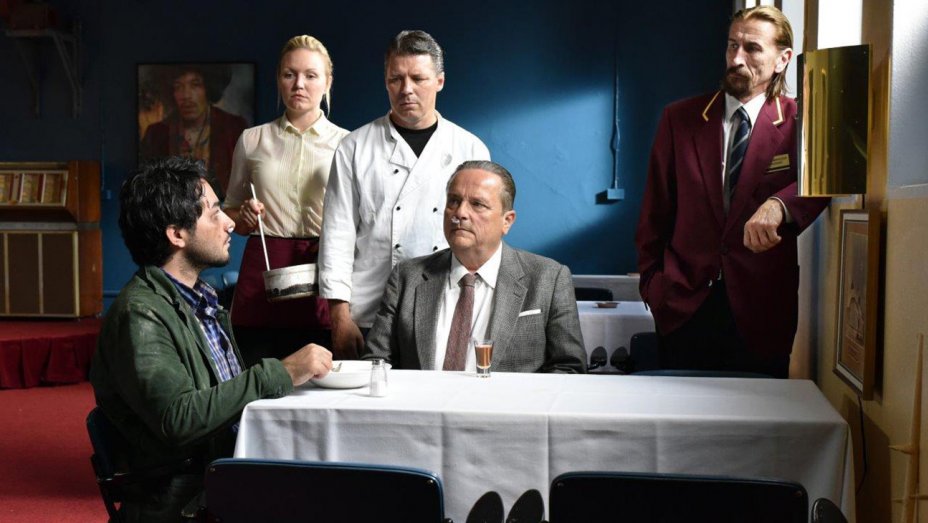
Sometimes, if put in the hands of the right director, a simple story is enough to make a great film. This is the case with “The Other Side Of Hope”. Directed by Finnish filmmaker Aki Kaurismäki, this comedy-drama has a very simple plot and only two main characters. One is Khaled, a Syrian refugee who has fled to Helsinki on a coal freighter. Trying to begin a new life and find his missing sister, he discovers that Finland is not such an idyllic place as he thought when he faces unwillingness from the local authorities and gets death threats from nationalist groups.
Wikström, the film’s deuteragonist, is an uptight traveling salesman who, after winning a poker match, decides to buy an old restaurant and turn it into a successful business. At first, the stories of the two seem separated, but as expected, during the second half of the film their destinies meet when Wikström finds Khaled sleeping in front of his restaurant and they…punch each other’s faces. Yeah, this is, like most of Kaurismäki’s late work, a funny film about serious matters.
The way this film manages to be quirky and lighthearted while still very insightful and relevant to the current world situation is a rare thing. Engaging and full-hearted, “The Other Side Of Hope” feels like a socially conscious Wes Anderson film and it’s totally worth watching.
16. The Turin Horse (dir. Béla Tarr and Ágnes Hranitzky, Hungary, 2011)
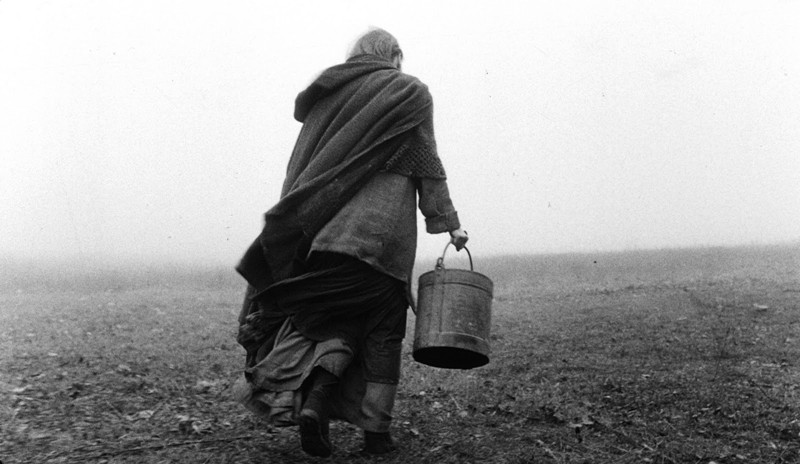
Béla Tarr’s last film is a simple, yet very profound philosophical drama which, for nearly 150 minutes, creates a dooming atmosphere and dwells on the heaviness of human existence and the mundanity of everyday life.
The film is set after the whipping of a horse in the Italian city Turin which is said to have caused the mental breakdown of philosopher Friedrich Nietzsche. Composed of 30 long take black-and-white shots, “The Turin Horse” depicts six days in the repetitive and arduous life of the horse’s owner and his daughter.
15. The Handmaiden (dir. Park Chan-wook, South Korea, 2016)
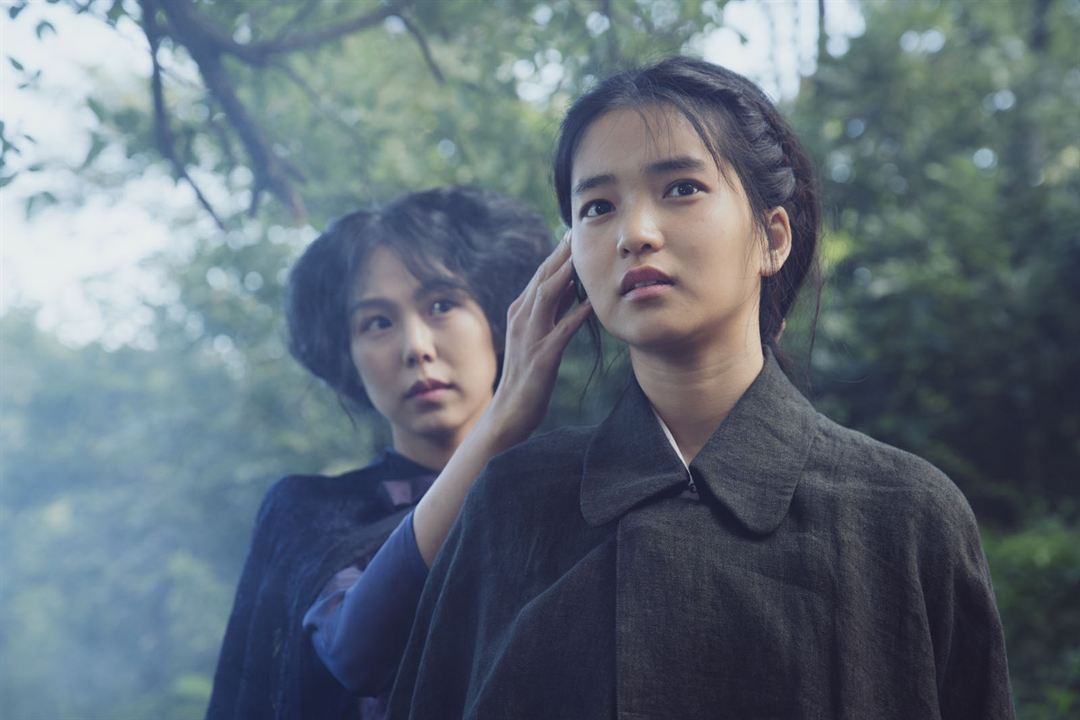
Made by “Oldboy” director Park Chan-wook, “The Handmaiden” is inspired by the British crime novel “Fingersmith” by Sarah Waters and takes places in the Japanese-occupied Korea of the 1930s, where a conman going by the name of Count Fujiwara (Ha Jung-woo) devises an intricate plot in order to marry a rich woman and steal her inheritance. Fujiwara hires a pickpocket called Sook-he (Kim Tae-ri) and asks her to become the woman’s maid in order to gain her trust and convince her to marry him.
“The Handmaiden” is a visually stunning film that benefits of an utterly captivating plot and consistently strong performances from its cast. It is also one of the most provocative films of the decade, combining the psychological thrills with numerous highly erotic moments.
14. Leviathan (dir. Andrey Zvyagintsev, Russia, 2014)

Andrey Zvyagintsev is undoubtedly one of the best Russians directors of this century. This decade, he’s made three movies which are all worthy of inclusion on this list: “Elena” (2011), “Leviathan” (2014) and “Loveless” (2017). We chose “Leviathan” because we think it is slightly more representative of his filmography, but a different choice would be equally right.
While Zvyagintsev rose to attention by conjuring Tarkovski with his 2003 film “The Return”, he has since developed a more unique style. His latest films are more grounded and have a common social theme. Zvyagintsev doesn’t shy away from pointing the finger at the corruption, political issues and other bleak aspects from his country and, as a result, his work has generated acclaim as well as controversy.
In “Leviathan”, we follow Kolya (Aleksei Serebryakov), a mechanic living in a small Russian fishing town who finds himself at a crossroads when the town’s mayor wants to demolish his house and expropriate his land in order to construct a new property. Angered with the authorities and the unfair amount of compensation his family is about to receive, Kolya contests the decision in court, but to no avail: the corrupt mayor’s influence has infiltrated every inch of the town. At the same time, Kolya has problems in his family as his marriage is staggering and his teenage son, whose biological mother has died, is angered with his stepmother.
“Leviathan” is not an easy or pleasant watch, but it is a must-watch. Apart from being a gorgeous looking film, the brutal, realist and overbearing depiction of the citizen against establishment fight also makes it a very important one. And while its ultimate message is one of resignation, the sole fact that this film was made indicates that Zvyagintsev is not really resigned to the problems in his country.
13. Pain and Glory (dir. Pedro Almodóvar, Spain, 2019)
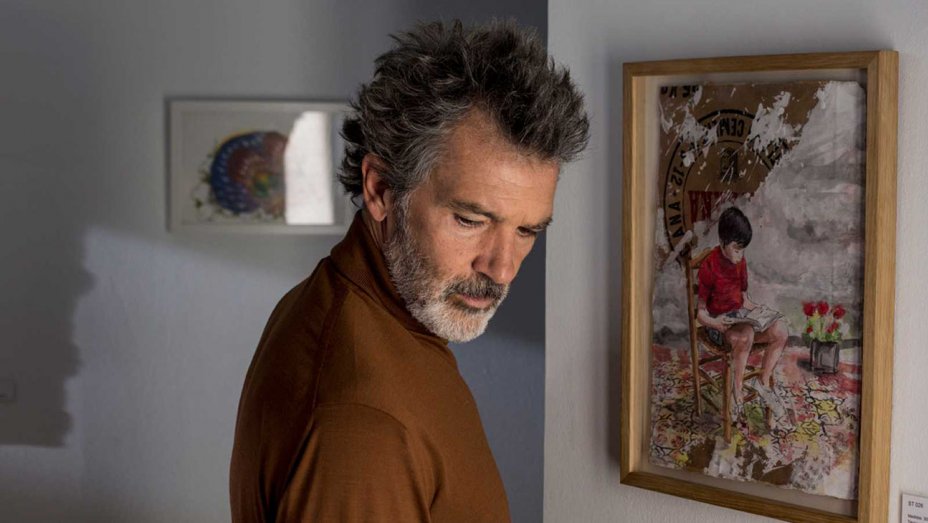
Antonio Banderas gives a career-best performance in this bittersweet semi-autobiographical drama directed by Spanish cineaste Pedro Almodóvar.
The film intertwines childhood memories with later life experiences and present-day events from the life of Salvador Mallo, a fictional film director who struggles with problems related to his aging, declining creative success and troubled personal life.
Mallo, who is played to perfection by Antonio Banderas and based on Almodóvar himself, reunites with Alberto, an actor who starred in one of his early films. The two discuss the upcoming release of the film’s remastered version and get high on heroin, which causes Mallo to recollect the days of his childhood, living with his mother (Penélope Cruz) and father (Raúl Arévalo) in a modest cave house in 1960s Paterna.
This is one of the most intimate character studies/auteur confessions we’ve ever seen. While it is a pretty laid back film, acting less plot-driven and more like a diary, where each entry is a well-chosen moment from the main character’s life, “Pain and Glory” is masterfully crafted and never feels dull for one second.
With 2011’s “The Skin I Live In”, 2016’s “Julieta” and, of course, “Pain of Glory”, it is impressive how many great films Almodóvar managed to add to his body of work in this decade.
12. Amour (dir. Michael Haneke, France/Austria/Germany, 2012)
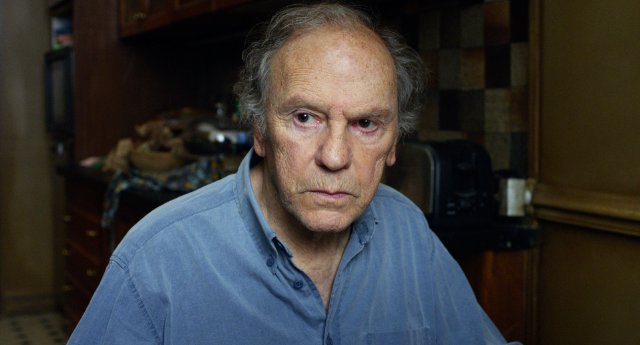
Michael Haneke’s “Amour” is one of the most subtle, realistic and heart-wrenching movies of the decade.
The film has earned the renowned Austrian director multiple accolades, including the Academy Award for Best Foreign Film at the 85th Academy Awards and the Palme d’Or at the 2012 Cannes Film Festival and was unanimously praised for its masterful depiction of old age, death, and lifelong love.
“Amour” focuses on Georges and Anne Laurent (played by Jean-Louis Trintignant and Emmanuelle Riva), an elderly couple of retired piano teachers from Paris. When Anne suffers a stroke which leaves her half-paralyzed, Georges shows total devotion and, despite his own old age, becomes her caretaker.
While many films would have taken a more dramatic and emotional route, Haneke’s film is much more restrained. We never see Georges crying over his wife’s condition and there is no sad, tear-jerking music playing in the background. This renders “Amour” a much colder film than usual dramas, but it also makes it much more accurate to the reality of old age and death. Truth is that young people fear death much more than elders, who most of the time come to terms with mortality by the time they hit old age.
11. Son of Saul (dir. László Nemes, Hungary, 2015)
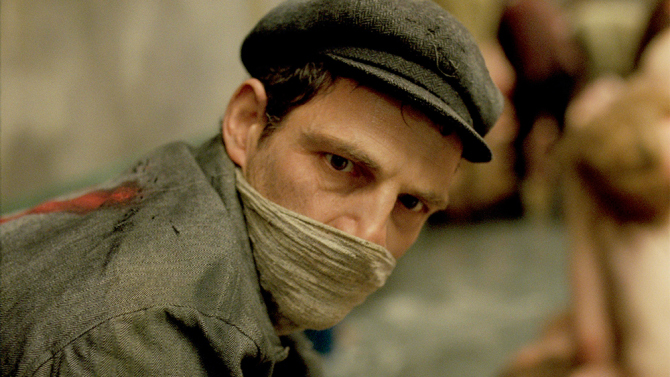
To watch “Son of Saul” and then realize all you’ve seen is just a movie and not the real thing – well that is a real head-scratcher.
This Hungarian film which has won the award for Best Foreign Language Film at the 88th Academy Awards is set in the Auschwitz concentration camp during World War II and follows a day and a half in the life of a Jewish-Hungarian prisoner who mistakes a dead child for his son and sets out to give him a proper Jewish burial. At the same time, the other prisoners are planning a secret uprising against the SS-guards.
László Nemes’s film has a depressing, claustrophobic and harsh atmosphere which, right from the beginning, throws you right in the middle of the Auschwitz concentration camp. For the remainder of the film, you will get a sense of turmoil and agitation which will never cease. At the end, you will know that you’ve just watched one of the best movies of the decade.
10. Shoplifters (dir. Hirokazu Koreeda, Japan, 2018)
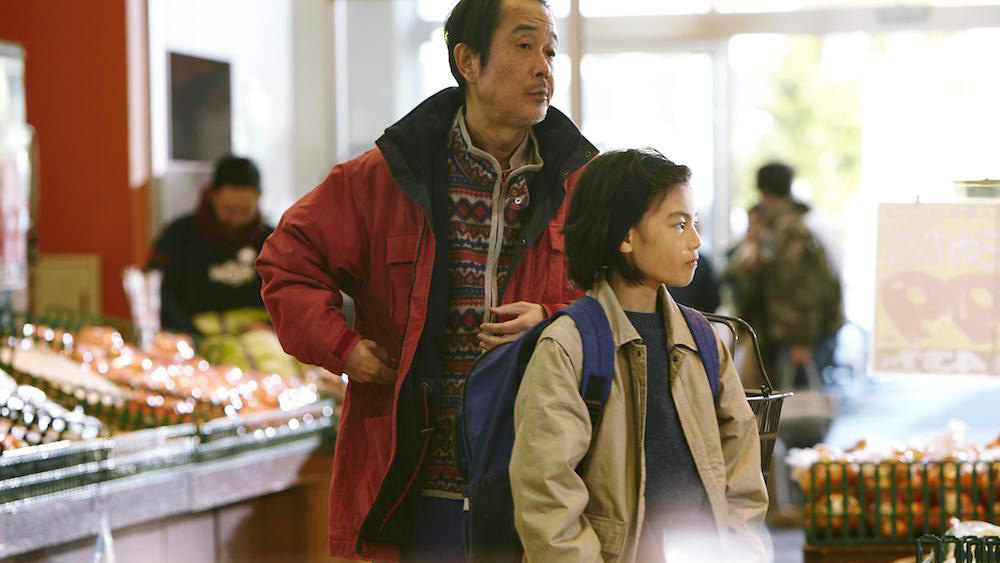
If you’re a film passionate, you’ve surely already seen or at least heard about “Shoplifters”, one of the most profound, emotional and thought-provoking foreign language movies this decade had to offer.
Hirokazu Koreeda’s domestic drama features a family of shoplifters from Tokyo who discover a little girl freezing outside in the cold and, despite their struggle to survive poverty, decides to take her home and unofficially adopt her.
With “Shoplifters”, Koreeda proved once again that he is among the best contemporary Japanese directors and finally managed to win the prestigious Palme d’Or award at the 2018 Cannes Film Festival.
9. Mommy (dir. Xavier Dolan, Canada, 2014)
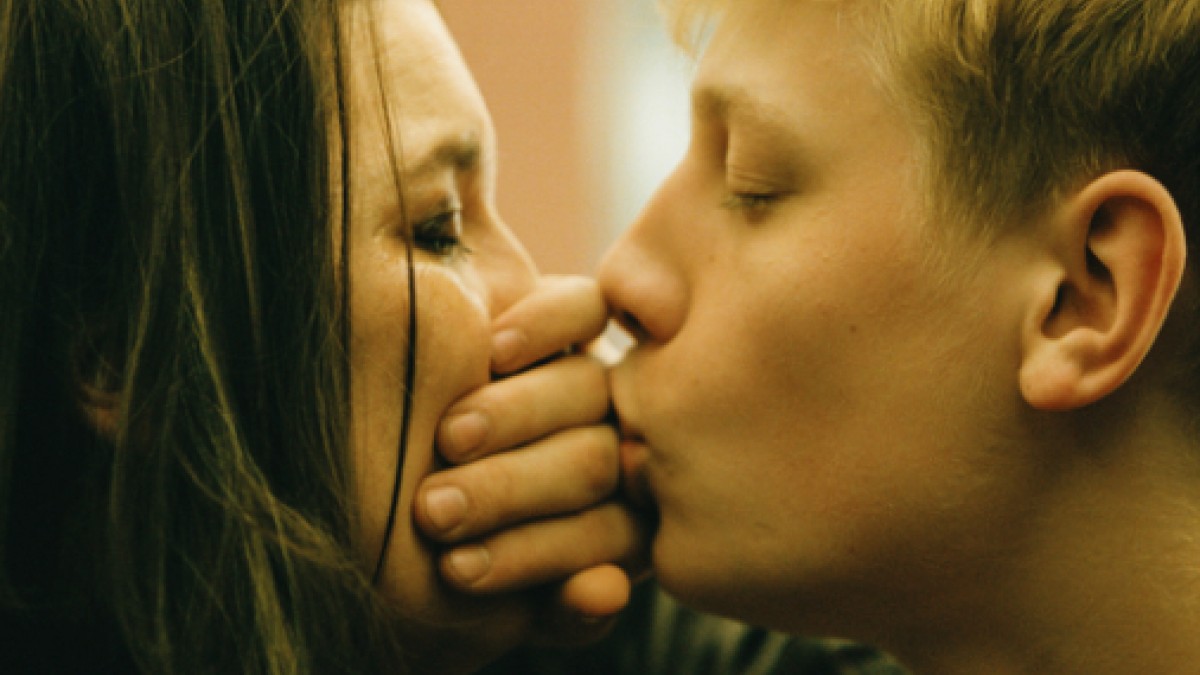
Xavier Dolan’s drama about a mother and her troublesome son who suffers from ADHD is sincere, insightful, powerful, has fantastic performances and is overall a modern masterpiece, but to be honest, one of the main reasons we urge you to watch this film is – spoiler alert – the superb scene where the image slowly extends from its 1:1 aspect ratio to a 16:9 widescreen as the main character is seen skating in the middle of a street with Oasis’ “Wonderwall” playing in his headphones.
This is a perfect scene and one of the most beautiful moments we’ve ever seen in a film this decade. You’ve probably heard “Wonderwall” countless times, but this song has never felt better than it does in Xavier Dolan’s film.